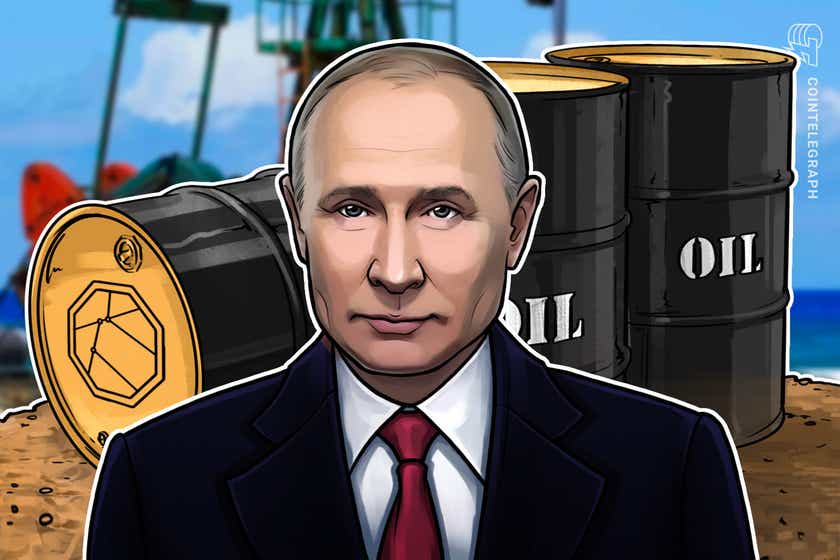The Russian president has not excluded the possibility that, at some point, crypto will become a “means of accumulation.”
Russian President Vladimir Putin believes that it’s “still premature” to use cryptocurrencies for settling trades of energy resources such as oil.
The Russian president discussed potential use cases of cryptocurrencies in a Thursday CNBC interview following a plenary session of the Russian Energy Week forum.
According to a full interview text published on the Kremlin’s official website, Putin said that private cryptocurrencies “can act as a unit of account,” but they are “very unstable.”
“Cryptocurrency oil contracts? It’s too early to talk about it. It works for transferring funds from one place to another, but in terms of trading, especially when it comes to energy resources, it is still premature in my opinion,” the president stated.
Putin went on to say that “everything evolves” and “has the right to exist,” adding that the Russian government is closely monitoring the cryptocurrency market. He also did not exclude the possibility that at some point cryptocurrencies will become a “means of accumulation.” “We see how this market fluctuates. It’s a bit early today,” Putin added.
The president said that cryptocurrencies are “not backed by anything yet.” When asked whether he considers the crypto holdings by Tesla CEO Elon Musk to be “worthless,” Putin said no, explaining that he only questioned crypto as a unit of account in the context of energy trading.
During the interview, the Russian president also claimed that the United States dollar “undermines its position” as an international reserve asset. “We aren’t interested in cutting off dollar payments completely, and we are so far satisfied with payments for energy resources in dollars, primarily for oil,” he added.
The news comes as Russian authorities consider a new law to limit cryptocurrency investments by non-accredited investors. Previously, the Russian central bank was reportedly planning to slow down transactions to crypto exchanges in order to protect retail investors from “emotional” purchases of crypto.





















